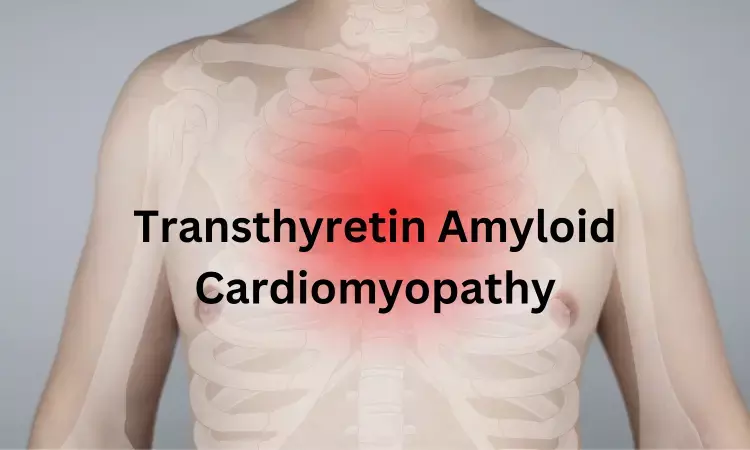- Home
- Medical news & Guidelines
- Anesthesiology
- Cardiology and CTVS
- Critical Care
- Dentistry
- Dermatology
- Diabetes and Endocrinology
- ENT
- Gastroenterology
- Medicine
- Nephrology
- Neurology
- Obstretics-Gynaecology
- Oncology
- Ophthalmology
- Orthopaedics
- Pediatrics-Neonatology
- Psychiatry
- Pulmonology
- Radiology
- Surgery
- Urology
- Laboratory Medicine
- Diet
- Nursing
- Paramedical
- Physiotherapy
- Health news
- Fact Check
- Bone Health Fact Check
- Brain Health Fact Check
- Cancer Related Fact Check
- Child Care Fact Check
- Dental and oral health fact check
- Diabetes and metabolic health fact check
- Diet and Nutrition Fact Check
- Eye and ENT Care Fact Check
- Fitness fact check
- Gut health fact check
- Heart health fact check
- Kidney health fact check
- Medical education fact check
- Men's health fact check
- Respiratory fact check
- Skin and hair care fact check
- Vaccine and Immunization fact check
- Women's health fact check
- AYUSH
- State News
- Andaman and Nicobar Islands
- Andhra Pradesh
- Arunachal Pradesh
- Assam
- Bihar
- Chandigarh
- Chattisgarh
- Dadra and Nagar Haveli
- Daman and Diu
- Delhi
- Goa
- Gujarat
- Haryana
- Himachal Pradesh
- Jammu & Kashmir
- Jharkhand
- Karnataka
- Kerala
- Ladakh
- Lakshadweep
- Madhya Pradesh
- Maharashtra
- Manipur
- Meghalaya
- Mizoram
- Nagaland
- Odisha
- Puducherry
- Punjab
- Rajasthan
- Sikkim
- Tamil Nadu
- Telangana
- Tripura
- Uttar Pradesh
- Uttrakhand
- West Bengal
- Medical Education
- Industry
Tafamidis attenuates decline of cardiac function in patients with transthyretin amyloid cardiomyopathy: JAMA

In a post hoc analysis of the randomized Tafamidis in Transthyretin Cardiomyopathy Clinical trial, there was less pronounced worsening of left ventricular (LV) stroke volume, LV global longitudinal strain, and LV filling pressure (estimated using septal and lateral E/e′ ratio) in patients treated with tafamidis, 80 mg, vs placebo. The study findings are published in JAMA Cardiology.
Transthyretin amyloid cardiomyopathy (ATTR-CM) is a known progressive, fatal disease caused by the deposition of transthyretin (TTR) amyloid fibrils in the myocardium, leading to cardiomyopathy and symptoms of heart failure. Tafamidis has proven to improve survival in patients with transthyretin amyloid cardiomyopathy (ATTR-CM) compared with placebo. However, its effect on cardiac function has not been fully elucidated.
Researchers conducted an exploratory, post hoc analysis of the Tafamidis in Transthyretin Cardiomyopathy Clinical Trial (ATTR-ACT), a multicenter, international, double-blind, placebo-controlled phase 3 randomized clinical trial conducted from December 2013 to February 2018. The ATTR-ACT included 48 sites in 13 counties and enrolled patients aged 18 to 90 years with ATTR-CM. Data were analyzed from July 2018 to September 2023. Patients were randomized to tafamidis meglumine, 80 mg or 20 mg, or placebo for 30 months.
Patients were categorized based on left ventricular (LV) ejection fraction at enrollment as having heart failure with preserved ejection fraction (≥50%), mildly reduced ejection fraction (41% to 49%), or reduced ejection fraction (≤40%). Changes from baseline to month 30 in LV ejection fraction, LV stroke volume, LV global longitudinal strain, and the ratio of early mitral inflow velocity to septal and lateral early diastolic mitral annular velocity (E/e′) were compared in patients receiving tafamidis, 80 mg, vs placebo.
The key findings of the study are
• A total of 441 patients were randomized in ATTR-ACT, and 436 patients had available echocardiographic data.
• Out of 436 included patients, 393 (90.1%) were male, and the mean (SD) age was 74 (7) years. A total of 220 (50.5%), 119 (27.3%), and 97 (22.2%) had heart failure with preserved, mildly reduced, and reduced LV ejection fraction, respectively.
• Over 30 months, there was less pronounced worsening in 4 of the echocardiographic measures in patients receiving tafamidis, 80 mg were 176, vs 177 in placebo (least squares mean difference: LV stroke volume, 7.02 mL; 95% CI, 2.55-11.49; P = .002; LV global longitudinal strain, −1.02%; 95% CI, −1.73 to −0.31; P = .005; septal E/e′, −3.11; 95% CI, −5.50 to −0.72; P = .01; lateral E/e′, −2.35; 95% CI, −4.01 to −0.69; P = .006).
Researchers concluded that “Compared with placebo, tafamidis, 80 mg, attenuated the decline of LV systolic and diastolic function over 30 months in patients with ATTR-CM. Approximately half of patients had mildly reduced or reduced LV ejection fraction at enrollment, suggesting that ATTR-CM should be considered as a possible diagnosis in patients with heart failure regardless of underlying LV ejection fraction.”
Reference: Shah SJ, Fine N, Garcia-Pavia P, et al. Effect of Tafamidis on Cardiac Function in Patients With Transthyretin Amyloid Cardiomyopathy: A Post Hoc Analysis of the ATTR-ACT Randomized Clinical Trial. JAMA Cardiol. Published online November 15, 2023. doi:10.1001/jamacardio.2023.4147.
MSc. Neuroscience
Niveditha Subramani a MSc. Neuroscience (Faculty of Medicine) graduate from University of Madras, Chennai. Ambitious in Neuro research having worked in motor diseases and neuron apoptosis is interested in more of new upcoming research and their advancement in field of medicine. She has an engrossed skill towards writing and her roles at Medical dialogue include Sr. Content writer. Her news covers new discoveries and updates in field of medicine. She can be reached at editorial@medicaldialogues.in
Dr Kamal Kant Kohli-MBBS, DTCD- a chest specialist with more than 30 years of practice and a flair for writing clinical articles, Dr Kamal Kant Kohli joined Medical Dialogues as a Chief Editor of Medical News. Besides writing articles, as an editor, he proofreads and verifies all the medical content published on Medical Dialogues including those coming from journals, studies,medical conferences,guidelines etc. Email: drkohli@medicaldialogues.in. Contact no. 011-43720751


